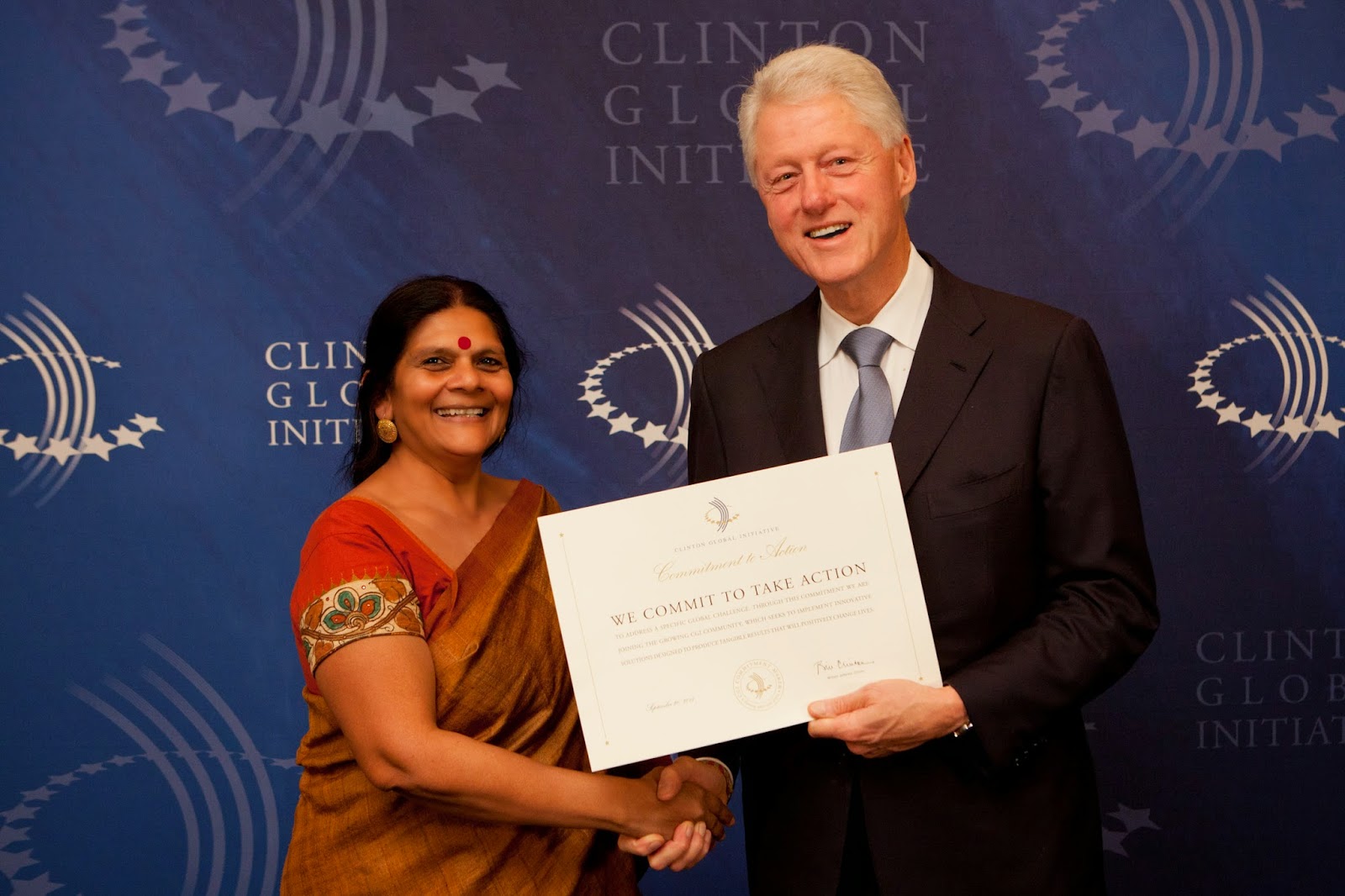- Public Policy
- Leadership
- Funding
- News & Events
- About the Center
Back to Top Nav
Back to Top Nav
Back to Top Nav
Back to Top Nav

An economist, farmer, and activist, Chetna Sinha works for social change in some of the poorest and most drought-stricken areas of rural India. She is the founder and president of the Mann Deshi Mahila Bank, a micro-enterprise development bank that serves more than 185,000 low-income women. She was named Social Entrepreneur of the Year 2013 for India by Palaniappan Chidambaram, Finance Minister of India and has been honored with the 2005 Jankidevi Bajaj Puraskar award for rural entrepreneurship. She has also been awarded lifetime membership with Ashoka Innovators for the Public, and was selected for the first class of Yale University's World Fellows program in 2002-2003.
Before her talk, “Financial Inclusion and Women Empowerment,” Courtney Wong ’15 sat down with Chetna Sinha for an interview.
CW: Why are the issues of women empowerment and financial inclusion so important for you?
CS: When I founded the bank, the idea wasn’t to just to give women loans or microcredit – low-income women approached me because they wanted to do savings. I wanted to help women do their financial planning, and I found that in spite of non-literacy, they could handle their finances and had a lot of energy about bringing the bank into existence. Then I realized, why not start a business school for women to also teach them soft skills and manage businesses? I found that these women are able to run their business successfully despite their challenges. Mann Deshi is not simply a microfinance institution; it’s more of a community bank. We try to see that women own businesses, women own knowledge, and women own property.
CW: Where do you see the future headed for Mann Deshi?
CS: Mann Deshi’s mission is to see 1 million entrepreneurs by 2020. And to do this, we have a bank, business school, radio, and a 24/7 help hotline that we have set up with the Chamber of Commerce.
CW: Is this what you envisioned when you started?
CS: When we started a bank, there wasn’t a concrete plan of action. We just wanted to help people. This bank was more of a mission for women empowerment than a financial institution. But once we started to get more customers, we developed a better business model. We design the products in such a way that they are delivered effectively. Mann Deshi was the first bank to change the policy for women.
CW: Why does this microfinance business model work?
CS: Mann Deshi recognizes that the solutions aren’t simple – if you want to make an impact on these women’s’ lives, you must not only provide the finances and access to capital, but also the knowledge transfer and soft skills so that they can use financial services more effectively and see that their second generation benefits from them.